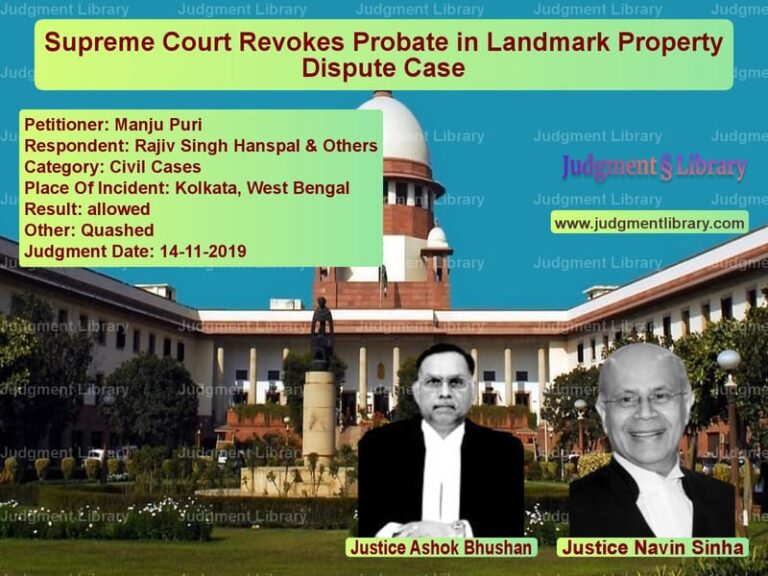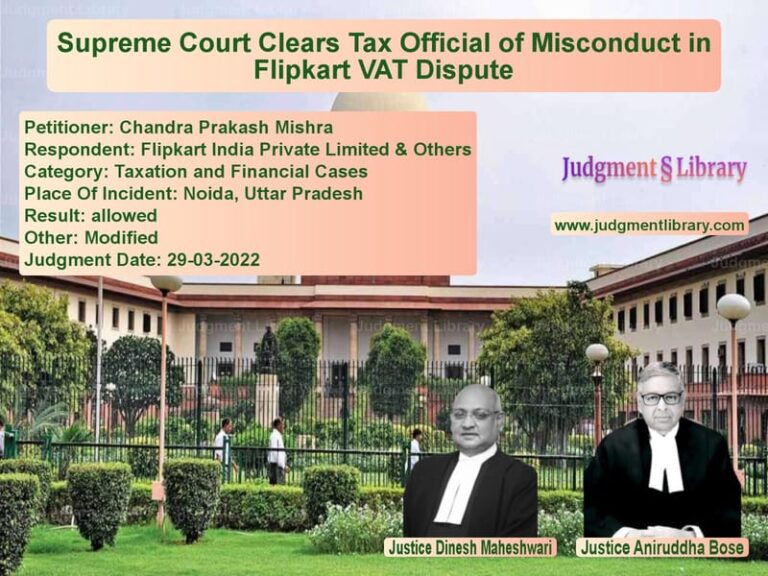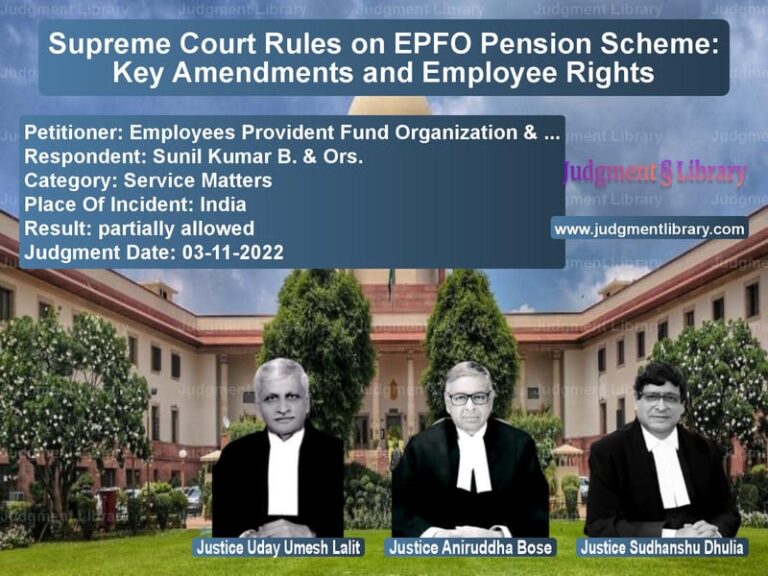Supreme Court Upholds Validity of Compromise Decree in Property Partition Dispute
The Supreme Court of India recently delivered a judgment in the case of Manjunath Tirakappa Malagi and Anr. vs. Gurusiddappa Tirakappa Malagi (Dead) through LRS, addressing a long-standing family dispute over ancestral property. The judgment, dated April 21, 2025, was delivered by a bench comprising Justice Sudhanshu Dhulia and Justice Ahsanuddin Amanullah. The case revolved around the validity of a compromise decree and the subsequent claims of the appellants for a share in the disputed property.
The appellants, Manjunath Tirakappa Malagi and another, had filed a suit in 2003 seeking to declare a compromise decree dated January 18, 2000, as null and void. They also sought partition of a 7-acre land, which they claimed was their father’s property and not part of the ancestral property. The appellants argued that their father had colluded with his brothers and father (their grandfather) to deprive them of their rightful share. The trial court and the High Court had dismissed their suit, leading them to approach the Supreme Court.
The Supreme Court, after examining the facts and legal provisions, upheld the decisions of the lower courts. The bench noted: “The appellants miserably failed to prove that the suit property is not a part of the ancestral property. After going through the records, we are of the considered view that the Trial Court correctly concluded that although the suit property was purchased in the name of the appellants’ father, it was purchased from the family funds and, thus, it is a joint family property.”
The court further emphasized the legal sanctity of a compromise decree under Order 23 Rule 3 of the Code of Civil Procedure (CPC). The judgment stated: “A reading of the above provision makes it clear that before passing a decree on the basis of a compromise, the Court has to satisfy itself that the suit has been adjusted by a lawful compromise. Once the Court passes a compromise decree after such a satisfaction, the decree cannot be challenged in an appeal as no appeal lies against a compromise decree.”
The Supreme Court also referred to the bar under Order 23 Rule 3A of the CPC, which prohibits filing a fresh suit to challenge a compromise decree. The bench cited its earlier decision in Pushpa Devi Bhagat v. Rajinder Singh, stating: “The only remedy available to a party to a consent decree to avoid such consent decree, is to approach the court which recorded the compromise and made a decree in terms of it, and establish that there was no compromise.”
The court dismissed the appeal, concluding that the appellants’ suit was barred by principles of res judicata and Order 2 Rule 2 of the CPC. The judgment reaffirmed the importance of finality in legal proceedings and the binding nature of compromise decrees.
Petitioner Name: Manjunath Tirakappa Malagi and Anr..Respondent Name: Gurusiddappa Tirakappa Malagi (Dead) through LRS.Judgment By: Justice Sudhanshu Dhulia, Justice Ahsanuddin Amanullah.Place Of Incident: Not specified.Judgment Date: 20-04-2025.Result: dismissed.
Don’t miss out on the full details! Download the complete judgment in PDF format below and gain valuable insights instantly!
Download Judgment: manjunath-tirakappa-vs-gurusiddappa-tirakap-supreme-court-of-india-judgment-dated-20-04-2025.pdf
Directly Download Judgment: Directly download this Judgment
See all petitions in Property Disputes
See all petitions in Succession and Wills
See all petitions in Contract Disputes
See all petitions in Legal Malpractice
See all petitions in Other Cases
See all petitions in Judgment by Sudhanshu Dhulia
See all petitions in Judgment by Ahsanuddin Amanullah
See all petitions in dismissed
See all petitions in supreme court of India judgments April 2025
See all petitions in 2025 judgments
See all posts in Civil Cases Category
See all allowed petitions in Civil Cases Category
See all Dismissed petitions in Civil Cases Category
See all partially allowed petitions in Civil Cases Category







